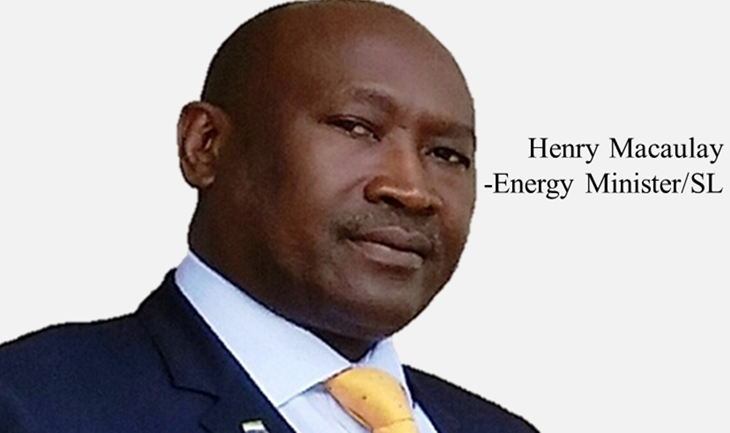By Joseph Margai in Freetown, Sierra Leone
The government of Sierra Leone continues to pursue an aggressive economic and sector development priority programs. The program was put in place by President Ernest Koroma, and it is intended to bring the country back to normalcy following a period of the deadly Ebola viral disease that claimed hundreds of lives.
The 15-month program is aimed at getting sectors involved that have the potential to stimulate economic recovery. Sierra Leone’s economy was badly hit with two incidents – the Ebola outbreak and the fall in the price of iron ore on the world market.
One of the sectors identified by President Koroma’s government was energy. In an interview in his Pademba Road office in Sierra Leone’s capital, Freetown, Minister of Energy, Ambassador Henry Macaulay, said during the Ebola recovery program, his ministry was mandated to increase electricity generation capacity from 75 to 150, adding that they were also asked to double access to energy from 125,000 to 250,000 households.
Highlighting his ministry’s success stories, the Energy Minister disclosed that they were able to enhance access to energy from 125,000 to 155,000 households. He further disclosed that they increased generation capacity from 75 to 131 megawatts so far.
Under the same Ebola recovery program, he added, they repaired all generating plants and installed 50 mini grids and 50 stand-alone solar systems. He said with this project, they were able to electrify 54 community health centers.
Mentioning the challenges, Macaulay said they were faced with resistance from some of their donor partners resulting in the cancellation of some of their projects.
However, he noted, electricity situation in the country has improved significantly. He recalled that in 2007, the total kilowatt hours produced were 47 million; in 2015, 259 million kilowatt hours were also produced.
According to Macaulay, in 2016 they produced 302 million kilo watt hours and between January to June this year, and produce 400 million kilo watt hours. Despite these successes, the Minister said his ministry needs more funds to produced sufficient electricity supply on a 24-hour basis.
He cited a World Bank study which recommends that the Energy Ministry needs 400 million USD for transmission and distribution of energy. In the case of generation, he said they need a minimum of US$1 Billion.

